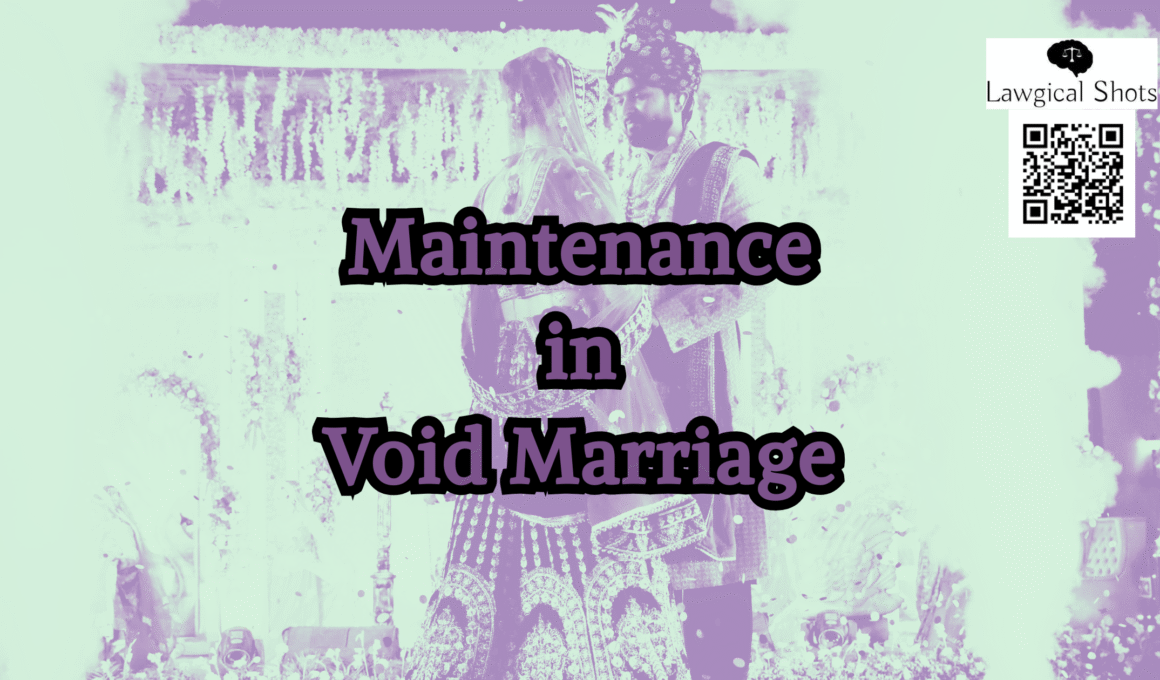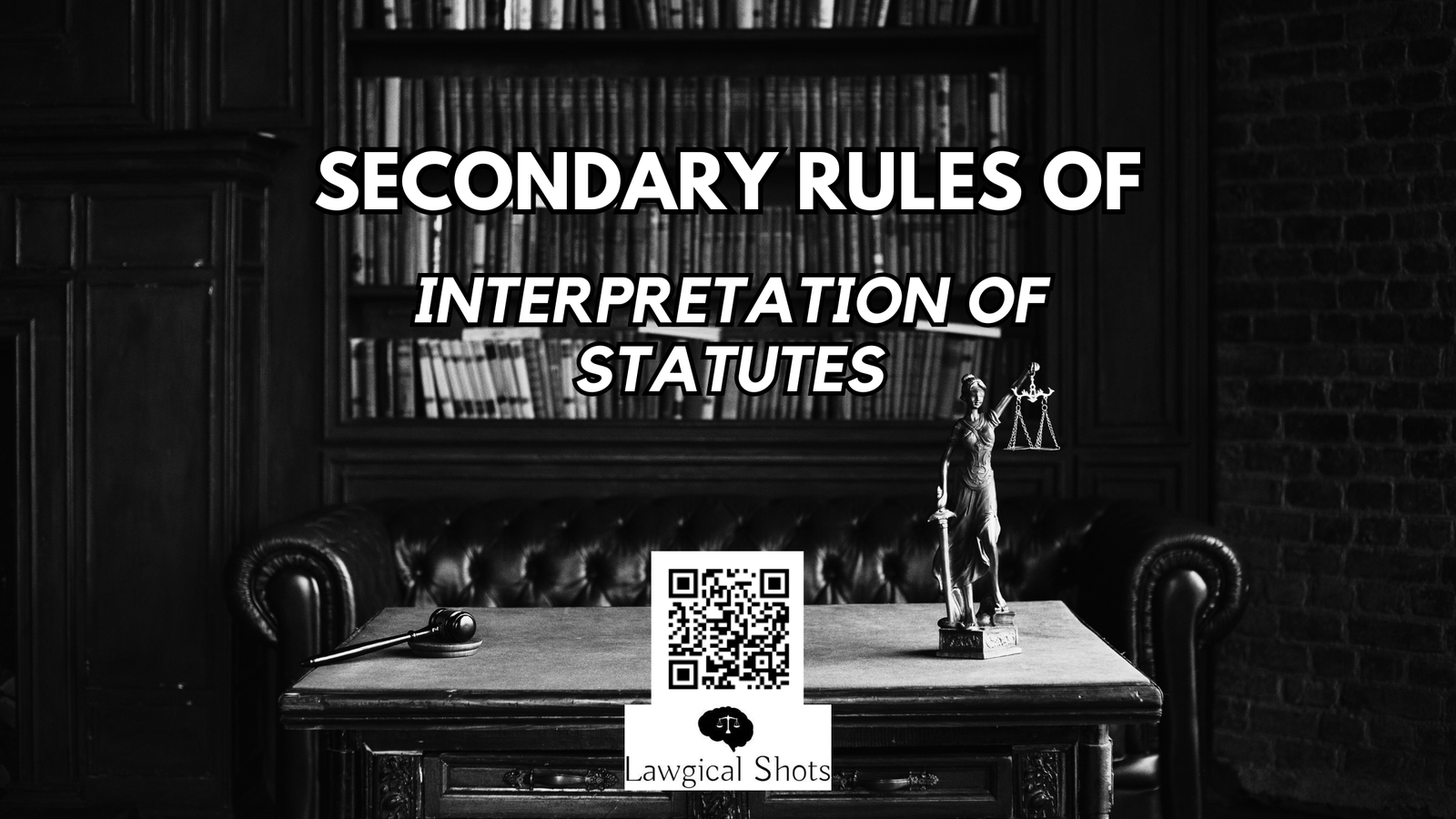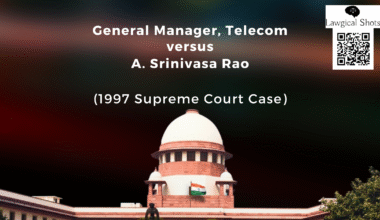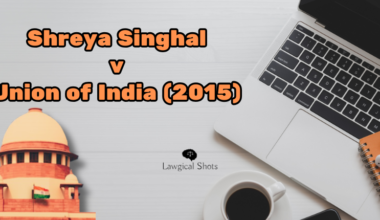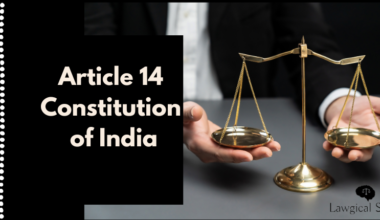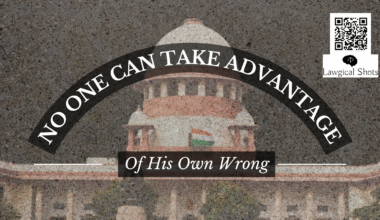In Indian society, marriage is often viewed as a sacred relationship; however, what happens when a marriage solemnized between parties turns out to be a nullity as per laws? Can someone who was never a “spouse” for the purpose of law, seek maintenance and/or alimony? A landmark judgment on maintenance in void marriage could clear the clouds. A recent ruling of the Supreme Court of India in case of Sukhdev Singh v. Sukhbir Kaur 2025 INSC 197 deals with this conundrum by interpreting the meaning of “marriage” under the Hindu Marriage Act, 1955 with necessary precision. Before looking at the Apex Court judgment, let’s have a look at the specific Hindu laws in this regard.
Understanding the Law: Hindu Marriage Act, 1955
The Hindu Marriage Act (HMA) provides the stream for a valid marriage and rights of the spouses by way of several provisions. Some of the key provisions are as follows:
Section 5: Conditions for a Valid Hindu Marriage
A Hindu marriage is only valid if all conditions specified in Section 5, are satisfied, described as follows:
• Never having spouse at the time of marriage (no bigamy).
• Both are of sound mind and able to give valid consent.
• The groom is over 21 years; the bride is over 18 years.
• The parties are not within the degrees of prohibited or sapinda relationship (not unless permitted by custom).
Section 11: Null and Void Marriages
It is considered void ab initio (i.e. it is as if it never existed) and to be a nullity if any of the essential conditions referred to above i.e. prohibited relationships [bigamy] or otherwise is satisfied. Hence, if a person has a living married spouse while getting married again, the second marriage is considered void. If the parties are in a prohibited relationship and still got married, while even their customs are of no help, the marriage is void.
Section 24: Maintenance Pending Litigation
An application can be made by either spouse for maintenance and litigation costs before matrimonial proceeding’s final order on the grounds that there is no income sufficient enough to support oneself at the time.
Section 25: Permanent Alimony and Maintenance
The court can order either spouse’s permanent maintenance at the time of granting decree under the Act (i.e. divorce, annulment or even decree of nullity) taking into account:
• Both parties’ income and assets.
• Conduct of parties.
• Circumstances of the case.
The Central Issue: Is there Maintenance for a Void Marriage?
The question before the Supreme Court was simple but difficult: If marriage is void as per Section 11 of HMA, can a party claim the benefit of permanent maintenance in Section 25?
Appellant’s (Husband’s) Arguments:
- Void = Non-Existent: A void marriage cannot come to be recognized by law, and thus, the case of “spouses” cannot exists – and defendant cannot lay claim to maintenance.
- Absurd Results: The husband argued that extreme cases that shaped on completely invalid relations – such as blood relative marriages or bigamous marriages – would be absurd because to allow maintenance would recognize their relationship in an illegal manner.
- Case Law: He referred to Bhausaheb v. Leelabai (2003), to show the woman was denied maintenance in a void marriage before because she was referred to as “illegitimate wife” in that case.
Respondent’s (Wife’s) Arguments:
• Support for Previous Judgments: The wife’s counsel cited Chand Dhawan and Rameshchandra Daga, both Supreme Court cases that affirmed, that there is a right to maintenance for void marriages.
• The Purpose of Section 25: It was contended that the spirit of the provision is to be beneficial and gender-sensitive to prevent financial destitution, especially against women.
• Constitutional Protection: The Constitution at Article 15(3) allows the State to make special provision for women. Thus, to deny maintenance would be against the spirit.
Supreme Court Judgment on Maintenance in Void Marriage
The Supreme Court provided a complex and progressive ruling, with an emphasis on justice and dignity rather than technicalities.
- Section 25 Applies to “Any Decree” — Such as Nullity
The Court stated that “any decree” under the Hindu Marriage Act includes a decree of nullity in terms of Section 11. Thus, if the marriage was annulled and declared void, the other spouse can seek maintenance under Section 25.
- Economic Justice Counts
The Court further explained that the economic disadvantage and the need for social justice should not be disregarded solely because a marriage was void. To deny maintenance on that basis would leave a woman with no remedy.
- Past Judgments Identified as Misogynistic
The Court criticized previous judgments which used derogatory references such as “illegitimate wife” and/or “faithful mistress”. The use of such derogatory references, said the Court, denigrates the dignity of women, and can even be against Article 21 (the right to life and dignity).
- Discretion till remains with the Court
The Supreme Court finally stated that maintenance under Section 25 is not default or absolute. It is discretionary. It will be contingent on the following considerations:
– The conduct of the spouse who is seeking maintenance
– The length of the relationship
– The financial position and need of the couple and individual
– Any other factors such as remarriage, or capacity for earnings.
Can a spouse claim maintenance while the case is still pending—even if the marriage is alleged to be void?
The Court answered the question in affirmation. It explained that under section 24 of HMA, any party may request interim maintenance while matrimonial proceedings (for example, divorce, judicial separation, nullity proceedings) are pending, regardless of whether the marriage even exists or is valid—and the applicant lacks resources available to them.
Significance of Judgment on Maintenance in Void Marriages
- Standing as a protectorate for less financially stable parties — typically women.
- This not only emphasizes that maintenance is a social remedy and not just a contractual benefit associated with a valid marriage.
- This judgment creates a precedent to show that Indian courts are operating more robustly toward gender-sensitive and human-centric interpretations of personal laws.It also reinforces that constitutional values of dignity, equality, and fairness override harsh legal technicalities.
Conclusion
The Supreme Court judgment on maintenance in void marriage properly maintains that maintenance is not about legitimizing nullity of marriage, but protecting a person, particularly a woman, from financial ruin arising from procedural error. In a country where arranged marriages are common without proper legal education and whereby women often have to give up their careers or earning potential for the family, this ruling ensures that no one loses out due to their ignorance of the legal status of the marriage.
The Supreme Court judgment on maintenance in void marriage has been decoded by our intern, Ms jai Shree. She has been assisting the team in bringing informational legal blogs.
